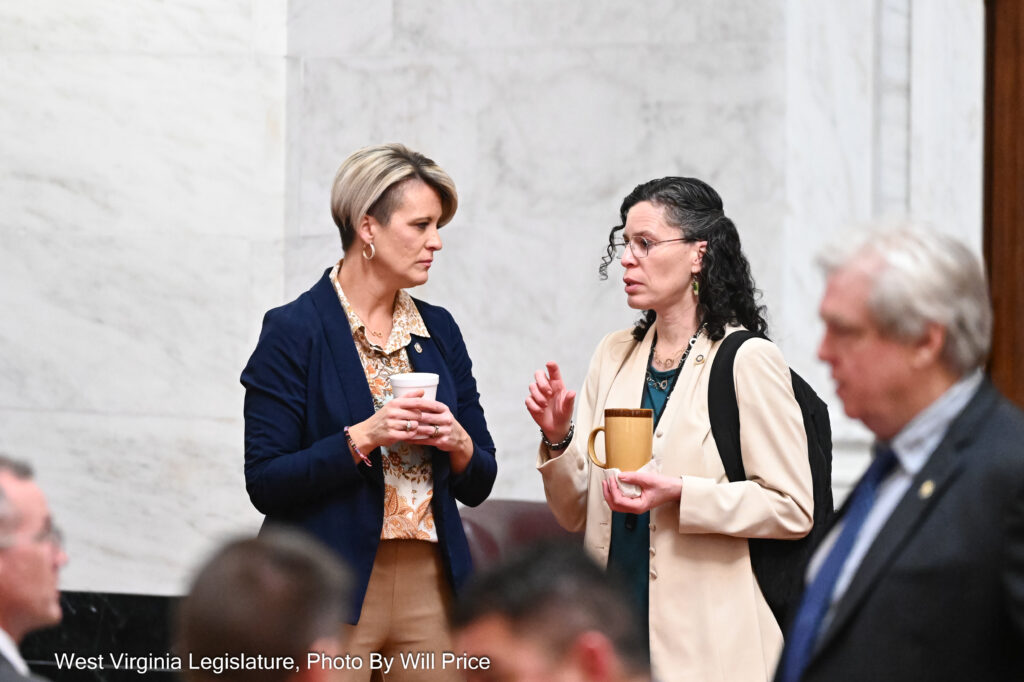School discipline was identified as a key issue coming into this year’s legislative session. But with the session’s end just days away, a key school discipline bill is in question after a contentious committee meeting Monday afternoon.
Senate Bill 614 aims to expand teachers’ ability to remove disruptive students to the elementary level from grades kindergarten through six. But the bill also has further requirements including suspension of the unruly student and placement in alternative education.
Lindsey McIntosh, general counsel for Kanawha County Schools, brought up several concerns when the Senate Education Committee discussed the bill in February. She was on hand again Monday afternoon in the House Education Committee, and told lawmakers that the bill will create more work for schools and school districts. According to McIntosh, the bill requires a student that has been removed to undergo a risk assessment, a step above what Kanawha County Schools already does.
“What we typically do, unless we’re talking about an expulsion, is we do a Threat Report, which is based on the Virginia model of threat reports,” she said. “It is a scientifically proven model that we evaluate whether or not that threat is transient, meaning it was just language used or if it was something that was substantive, meaning they have an intent to actually do what they stated that they were going to do. Once that threat report comes back as substantive, then we do the risk assessment.”
McIntosh said the county does far more threat reports than risk assessments.
She further warned legislators that as written, the bill’s required assessment could spell federal legal trouble for schools. McIntosh said the requirement triggers special education protections under the Individuals with Disabilities Education Act, also known as IDEA. Those federal protections are incongruous with the bill’s requirement to remove students from their classroom.
“It’s going to create an ambiguity that is going to lead to litigation, there is no way above that or beyond that,” McIntosh said. “If we have teachers that are asking for these students to be removed, and the law says technically they are protected students under the IDEA, which all of these kids would be because they’re all now triggering ChildFind under this language, then we as a school system have to figure out how to litigate – are we under the IDEA? Or are we complying with the law?”
SB 614’s lead sponsor and Senate Education Chair Sen. Amy Grady, R-Mason, was on hand to defend the bill. She said the bill’s requirements raise the standard for all counties.
“The whole purpose is to remove that child immediately, one to three days, and there have been school systems who say we can’t do a risk assessment, or we can’t do analysis in three days,” Grady said. “Well, you can, you’re just not doing it right now because there’s nobody forcing your hand to get it done right away. And this is kind of what we want to do is make sure we get that done quickly, rather than them dragging their feet for two weeks at a time and saying we don’t have that ready.”
Grady, a teacher, has consistently said that discipline is the number one issue for teachers, driving them away from the profession and robbing other students of their right to learn. She said SB 614 isn’t perfect, but something needs to be done to help the situation.
“You need more people to help with risk assessments, then so be it. That’s what you do,” Grady said. “You rearrange things. That’s what we do in education, we make do with what we have. And so I think that, that’s the best way we would do it now. And if it seems like there are a lot of referrals and specific counties or specific areas, then we have to revisit that and see what needs to be done.”
Grady said the law can be reassessed moving forward as needed, acknowledging it will not fit every situation.
“We don’t have an answer for everything. I wish we did,” she said. “And I wish that this bill solved every problem we have, it would be so great. I worked so hard to try to make this perfect. And I realized that it’s not perfect, and it’s never going to be perfect. Because let’s face it, every kid is different. Every county is different. Every school is different, every teacher is different. And so it’s not a one size fits all.”
After more than an hour of discussion over the bill’s language and potential changes to ensure compliance with federal requirements, the committee adjourned without taking further action on SB 614. With only four days left in the regular session, the bill’s future is unclear.
Language similar to, but less stringent than, SB 614 is included in House Bill 5262, also known as the Teacher’s Bill of Rights, which has cleared both education committees and is now pending in Senate Finance.























